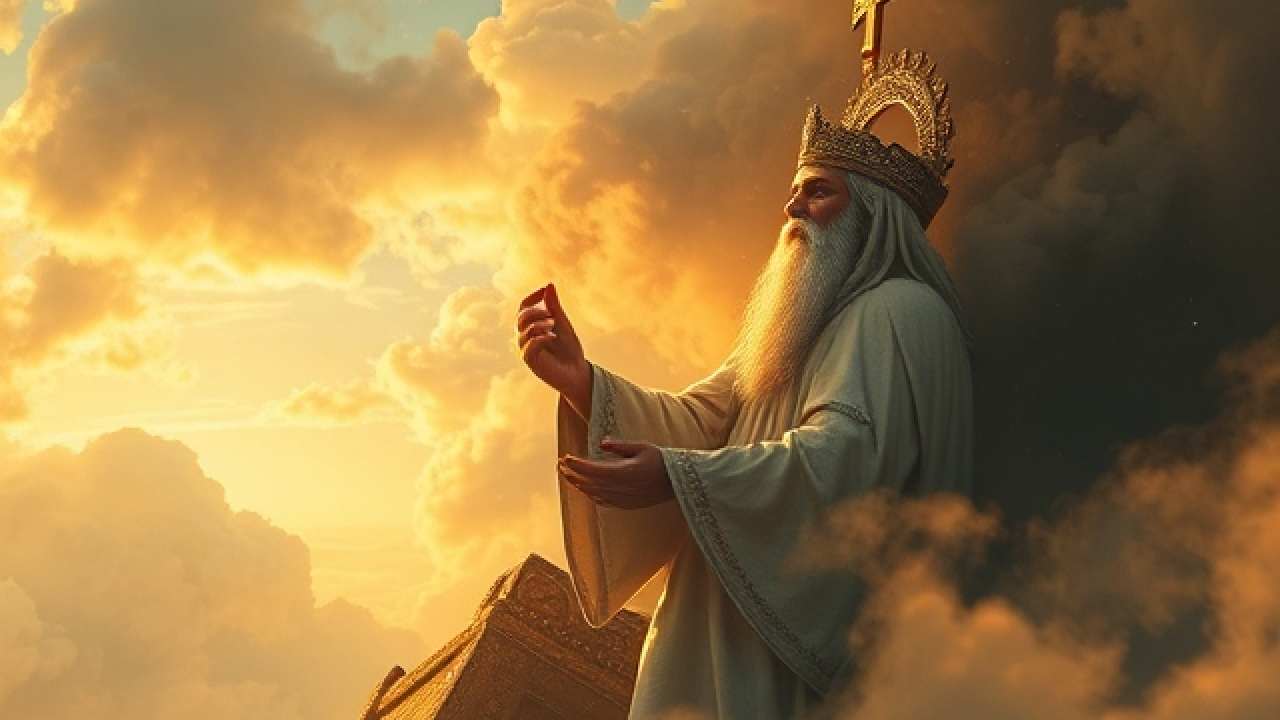In the realm of theological symbolism, the number 620 carries a profound resonance linked with the concept of the Mashiach, or Messiah. This divine connection often surprises scholars, who delve into the mystery of how Mashiach Of The Living God 620 encapsulates completeness and fulfillment in religious contexts. Could it be that the number itself holds a key to understanding greater spiritual promises?
Embedded within Judaic tradition, the association of the Mashiach Of The Living God 620 speaks to a historical depth of understanding. Traditionally, it corresponds to the sum of all mitzvot (commandments) plus the seven Noahide laws, symbolizing universal recognition and spiritual wholeness. This intriguing correlation invites further contemplation on the path to redemption and unity envisaged in the eschatological hopes of many believers.
The “Mashiach of the Living God 620” combines Jewish eschatological beliefs with numerology, linking the anticipated Messiah to divine perfection. The number 620 symbolizes completeness, representing 613 mitzvot plus seven Noahide laws, underscoring spiritual fulfillment and ethical living as pathways toward realizing this messianic vision.
Mashiach of the Living God: A Brief Overview
The phrase “Mashiach Of The Living God 620” holds great significance in Jewish thought. It refers to the anticipated Messiah, a leader who will bring peace and unity. In this context, the term “Living God” highlights an active, present deity engaged with the world. Many believers see this figure as a bridge between the divine and humanity. This hope has been part of Jewish faith for centuries.
The idea of the Mashiach comes from ancient teachings and scriptures. These texts describe a future time of justice and harmony led by the Mashiach. Rooted deeply in tradition, it inspires countless stories and discussions. Different sects within Judaism interpret the details slightly differently. However, the core idea remains a hopeful vision of the future.
Throughout history, many individuals have been seen as potential Mashiach. However, none have fully met all the traditional criteria. This list includes
- leaders
- teachers
- visionaries
Each has contributed to the ongoing dialogue about the Mashiach’s role. Despite various claims, the true Mashiach remains a source of anticipation.
The concept of the Mashiach Of The Living God 620 captures the vision of eventual redemption and betterment. Many people draw hope and motivation from these expectations. This belief influences cultural, religious, and social aspects within communities. Understanding this idea offers a glimpse into both historical and contemporary Jewish life. It highlights the enduring power of faith and aspiration.
Origins and significance of the term Mashiach
The term “Mashiach” comes from the Hebrew word meaning “anointed one.” In ancient times, anointing with oil was a sign of being chosen or set apart for a special purpose. Kings and priests were often anointed as a symbol of their divine appointment. This tradition established a clear connection between religious rites and leadership roles. Over time, “Mashiach” evolved to signify a future leader who would bring peace.
The idea of the Mashiach has deep roots in Jewish scripture. Prophets like Isaiah and Jeremiah wrote about a savior who would rebuild Israel and restore justice. These texts provided hope during times of oppression and exile. Believers found comfort in the promised arrival of a divine redeemer. Hence, this enduring hope has been central to Jewish faith for millennia.
Various historical events fueled interest in the concept of the Mashiach. Many people interpreted challenging periods as precursors to the redemption time promised by the Mashiach. This interpretation has been especially strong during hardships like the destruction of the Second Temple and the exile in Babylon. Communities often viewed leaders rising in turbulent times through this lens. However, the true Mashiach is expected to meet specific criteria.
The significance of Mashiach goes beyond religious aspects; it also impacts cultural and social spheres. Throughout history, stories and songs about the Mashiach have inspired perseverance and resilience. Today, the term serves as a symbol of hope and unity for individuals across the globe. This belief influences art, literature, and even politics. The promise of a future leader continues to resonate in various walks of life.
Decoding the Number 620 in Jewish Tradition
The number 620 holds a special place in Jewish tradition. It’s not just a number; it symbolizes completeness and connection to divine commandments. In Hebrew, numbers often hold deeper meanings, linked to both letters and words. For example, 620 is the sum of all 613 mitzvot plus the seven Noahide laws. Together, they represent a total of 620 commandments guiding ethical and moral behavior.
The word “Keter,” meaning “crown” in Hebrew, is numerically represented by 620. This association ties the number to ideas of leadership and divine authority. In Jewish thought, the crown signifies the highest spiritual level one can achieve. It represents a state of closeness to God, driving individuals to strive for enlightenment. Thus, the number 620 encourages spiritual growth and understanding.
Exploring 620 reveals a pattern of balance and harmony in Jewish teachings. This number emphasizes unity among all people, beginning with basic moral laws. Adherence to these principles fosters peace and community strength. The teachings of 620 challenge followers to live ethically and with purpose. Many find inspiration in these ideals for daily life.
Some scholars have used tables to illustrate connections between numbers and words in sacred texts.
| Concept | Numerical Value |
|---|---|
| Keter (Crown) | 620 |
| Mitzvot (Commandments) | 613 |
| Noahide Laws | 7 |
This practice helps uncover deeper meanings and messages within the tradition. These insights guide practitioners in their spiritual journey, reinforcing the importance of numerology in faith. The exploration of 620 remains a fascinating aspect of Jewish tradition.
Linking Mashiach and 620: A Symbolic Perspective
In Jewish tradition, the connection between the Mashiach and the number 620 brings layers of symbolic meaning. This link can be found in the value of the word “Keter,” which means “crown,” representing a divine leadership quality tied to the Mashiach. As a crown signifies authority and completion, it parallels the Messiah’s role of bringing peace and fulfillment. This symbolic connection provides a deeper understanding of both the Mashiach and the hopes surrounding this figure. By examining these ties, one can appreciate how numbers and words enrich Jewish teachings.
The concept of the Mashiach fulfilling 620 commandments encompasses religious and moral ideals. The idea involves completing 613 mitzvot plus the seven Noahide laws. This blend of laws signifies unity among Jews and non-Jews, achieving holistic spiritual peace. Through living by these principles, believers strive to bring about the conditions for the Mashiach. This understanding highlights an actionable path toward redemption.
Relating 620 to the Mashiach offers a broader symbolic meaning that extends beyond mere numbers. As a representation of divine truth and justice, the number inspires believers to anticipate the Messiah with hope and faith. This expectation motivates people to engage in acts promoting kindness and community. By doing so, they align themselves with the lofty ideals connected to the Mashiach. Such perspectives emphasize the importance of numbers in guiding ethical living.
Tables listing the mitzvot and Noahide laws help clarify their meanings.
| Categories | Number | Description |
|---|---|---|
| Mitzvot | 613 | Jewish commandments |
| Noahide Laws | 7 | Universal moral codes |
This visual aid makes it easier to understand how each contributes to the total of 620. As a result, the combined laws paint a picture of a community aligned with Mashiach’s vision. These insights create a mosaic of Jewish thought that leads toward spiritual completeness.
Within various texts and teachings, the Mashiach’s link to 620 remains a point of continuous reflection. This connection challenges believers to explore the mystical side of numbers and their implications. It asks individuals to consider how numbers shape their faith and daily lives. Engaging with these ideas leads to exploration and renewed commitment to spiritual journeys. Ultimately, this link offers both a guide and an aspiration for those reflecting on the Mashiach.
Interpreting the Concept of ‘Living God’ in Judaism
In Judaism, the idea of a “Living God” is central to the understanding of faith and existence. This concept refers to God as an active, dynamic presence in the world rather than a distant entity. It emphasizes that God is involved in everyday life, guiding and supporting believers. This belief in a Living God fosters a personal connection between individuals and the divine. It has inspired countless stories and traditions throughout Jewish history.
The portrayal of God as living also encourages a relationship that is continuous and evolving. For Jews, engaging with God involves following commandments and participating in religious ceremonies. These actions serve as expressions of faith and devotion. Through these practices, believers feel God’s presence in their lives. This continuous interaction affirms God as a vibrant force.
Different aspects of daily life reveal the nature of the Living God. Opportunities to experience this presence can be seen in nature, in acts of kindness, and during prayer. These moments remind individuals of the divine’s watchful guidance. Engaging with God in everyday activities highlights the harmony between the worldly and the spiritual. This holistic approach strengthens the bond with God.
The Jewish texts offer insights into understanding this divine relationship more deeply. Historically, sacred writings like the Torah describe God’s interaction with humanity. These stories showcase God’s caring and sustaining role. They remind the faithful of God’s promises and covenants. This rich literary heritage continues to shape and deepen the understanding of a Living God in contemporary practice.
Modern Judaism still embraces the idea of a Living God actively shaping the universe. This belief calls for reflection and awareness in each individual’s journey of faith. Exploring this connection provides an avenue for personal growth and transformation. By recognizing life’s divine aspects, individuals can approach challenges with hope and resilience. Such faith reinforces the timeless nature of God’s presence.
Collective Implications: Understanding ‘Mashiach of the Living God 620’ in Context
The phrase “Mashiach Of The Living God 620” connects several core elements of Jewish belief, each holding a particular significance. It brings together the anticipated arrival of the Mashiach, the active presence of a Living God, and the symbolic meaning of the number 620. Together, these elements form a rich tapestry of ideas that shape Jewish thought and practice. They call upon believers to consider the interconnectedness of divine promises. This synergy fosters a deeper exploration of faith.
The term suggests a future state where ethical guidelines inspired by divine commandments contribute to spiritual completeness. The inclusion of Mashiach Of The Living God 620 reminds practitioners of the importance of following all commandments. By aligning with these teachings, individuals work toward a holistic spiritual goal. This adherence allows the divine vision of the Mashiach to inspire improved communities. In this context, the mystical and practical aspects of Jewish life merge.
A list of essential elements enhances understanding of this phrase.
- Mashiach: Represents hope and future redemption.
- Living God: Emphasizes God’s active involvement.
- 620: Symbolizes fulfillment and completeness.
These components illustrate a path to achieve a unified spiritual existence. They encourage reflection on how one’s actions can shape collective well-being.
Tables illustrating the commandments can serve to reinforce the knowledge necessary for understanding these ideas.
| Concept | Description |
|---|---|
| Mitzvot | The 613 commandments in Torah |
| Noahide Laws | Seven universal ethics |
These detailed aspects highlight the comprehensive requirements expected of practitioners. By fulfilling these obligations, believers aim to bring the vision of the Mashiach closer to reality.
Engagement with the “Mashiach of the Living God 620” challenges individuals on personal and communal levels. It requires thoughtful consideration of the interconnected aspects of faith. Those who embrace this understanding often find a renewed sense of purpose. It inspires actions aligned with divine principles and aspirations. Thus, this phrase serves as a guiding light within the broader context of Jewish spirituality.
Conclusion
The intricate relationship between “Mashiach Of The Living God 620” and Jewish tradition reveals the depth of spiritual aspiration in faith. This interplay of numerology and eschatology paints a picture where numbers guide actions toward fulfilling ancient prophecies. Such complexities underscore how intertwined religious symbols and beliefs drive cultural continuity.
Understanding these elements provides insights into Jewish hopes for redemption and unity. It highlights an ongoing journey inspired by divine promises and ethical conduct. As scholars continue to explore these themes, they contribute to a rich tapestry that shapes collective religious identity and future aspirations.
FAQ:
What is the significance of the number 620 in Jewish tradition?
In Jewish tradition, the number 620 represents completeness and fulfillment, symbolizing the 613 mitzvot (commandments) plus the seven Noahide laws, which signify universal recognition and spiritual wholeness.
Who is the Mashiach in Jewish eschatology?
The Mashiach, or Messiah, is a future leader who will bring peace, justice, and unity, bridging the divine and humanity, and is anticipated to meet specific traditional criteria.
What is the connection between the Mashiach and the number 620?
The Mashiach is linked to 620 through the symbolic representation of completeness and fulfillment, emphasizing the importance of following divine commandments and ethical living to achieve spiritual wholeness.
What does the phrase “Living God” mean in Jewish context?
The “Living God” refers to an active, dynamic presence in the world, guiding and supporting believers, fostering a personal connection between individuals and the divine.
How does the concept of “Mashiach of the Living God 620” relate to Jewish spirituality?
This concept represents the intersection of eschatology, numerology, and ethical living, guiding believers toward spiritual completeness, unity, and redemption, inspiring hope, resilience, and actions aligned with divine principles.







